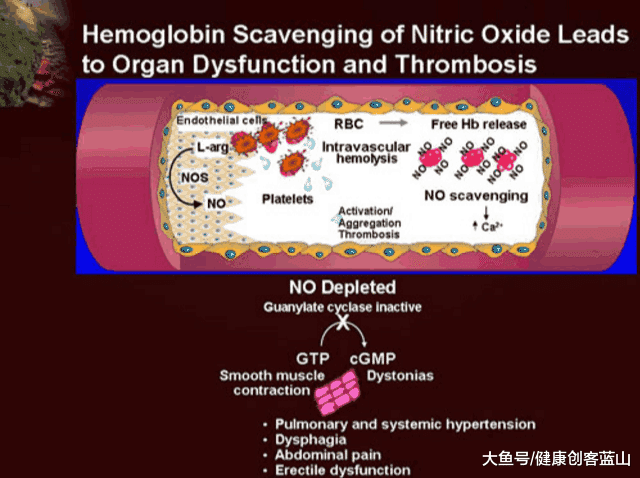英国南安普敦大学和爱丁堡大学 阳光能预防心脏病和中风吗?
Can sunlight protect against heart attack and stroke?
英国南安普敦大学和爱丁堡大学进行的一项新研究表明,暴露在阳光下有助于降低血压
英国南安普敦大学和爱丁堡大学进行的一项新研究表明,暴露在阳光下有助于降低血压,该研究结果发表在《皮肤病学调查杂志》上。反过来,这可以降低心脏病和中风的风险。
美国国立卫生研究院(National Institutes of Health)的数据显示,美国约三分之一的成年人患有高血压。我们知道血压会随着年龄的增长而升高,但遵循健康的生活方式有助于延缓或防止血压的升高。
超重的人更容易患高血压,我们也知道黑人比白人或西班牙裔更容易患高血压。
《今日医学新闻》(Medical News Today)最近看到的研究表明,高血压对女性来说可能更危险,社会经济地位也可能是成功降低血压的一个因素。
为什么降低血压很重要?
随着时间的推移,高血压会导致严重的问题,包括心脏病、中风和肾衰竭。每年全球总死亡人口中30%的人死于心脏病。对一些人来说,高血压也会导致动脉瘤、动脉狭窄或视力障碍。
我们已经知道,遵循健康的饮食(不要吃太多盐或喝太多酒),积极锻炼身体,保持健康的体重,不吸烟和学会控制压力都有助于保持正常的血压。
这项新的研究发现,皮肤暴露在阳光下也可以通过还原皮肤和血液中的小信使分子和一氧化氮(NO)水平来降低血压。
这项新的研究发现,皮肤暴露在阳光下也可以通过产生一氧化氮(NO)水平来降低血压。
一氧化氮如何影响血压?
南安普敦大学实验医学与整合生物学教授Martin Feelisch解释道:
“一氧化氮(NO)和它的分解产物一起参与了血压的调节。暴露在阳光下,少量一氧化氮(NO)从皮肤转移到血液循环中,降低血管张力;随着血压下降,心脏病和中风的风险也会降低。
研究人员让24名志愿者的皮肤暴露在紫外线(UVA)下,每次持续20分钟。
研究报告的结果表明,由于暴露于UVA,志愿者的血压明显降低。研究人员认为,这种影响的关键在于受试者皮肤上层预先储存的一氧化氮。
研究报告的结果表明,由于暴露于紫外线UVA,志愿者的血压明显降低
“我们认为,皮肤上的一氧化氮对心血管健康是一个重要的、迄今被忽视的因素,”费利施教授说。
我有高血压——我应该多晒晒太阳吗?
费利希教授认为,这一研究结果可能有助于公众对暴露在阳光下的健康建议进行新的讨论,因为为了避免皮肤癌的风险,尽量减少暴露在阳光下的时间,也会减少暴露在阳光下的有益影响。
因此,过分小心避免晒太阳可能会增加患其他疾病的风险。Feelisch教授解释道:
“这些结果对于正在进行的关于阳光对健康的潜在益处以及维生素D在这一过程中的作用的争论具有重要意义。”避免过度暴露在阳光下是预防皮肤癌的关键,但完全不暴露在阳光下,出于恐惧或某种生活方式的原因,可能会增加患心血管疾病的风险。也许除了骨骼健康外,口服维生素D的效果一直令人失望。
但是,在研究人员得出结论说,在更慢性的环境中,阳光能有效降低血压之前,还需要做进一步的研究。
高血压患者可以通过健康饮食、定期锻炼、避免尼古丁、酒精和盐的诱惑以及尽最大努力过上无压力的生活来预防将来的并发症。
Can sunlight protect against heart attack and stroke?
Published Tuesday 21 January 2014 By David McNamee
New research conducted by the Universities of Southampton and Edinburgh in the UK, and published in the Journal of Investigative Dermatology, suggests that exposure to sunlight may help reduce blood pressure. In turn, this could cut the risk of heart attack and stroke.
According to the National Institutes of Health, about 1 in 3 adults in the US have high blood pressure. We know that blood pressure tends to rise with age, but following a healthy lifestyle can help delay or prevent this rise.
Overweight people are more likely to have high blood pressure, and we also know that black people are also more at risk for this condition than white or Hispanic people.
Medical News Today recently looked at studies showing that high blood pressure can be more dangerous in women, and that socio-economic status can also be a factor in successful blood pressure reduction.
Why is reducing blood pressure important?
Over time, high blood pressure can lead to serious problems including heart disease, stroke and kidney failure. Heart disease globally accounts for 30% of deaths every year. In some people, high blood pressure can also cause aneurysms, narrowing of the arteries or vision impairment.
We already know that following a healthy diet (without eating too much salt or drinking too much alcohol), being physically active, staying at a healthy weight, not smoking and learning to manage stress all help maintain normal blood pressure.
This new study found that exposure of the skin to sunlight may also reduce blood pressure, by reducing levels of small messenger molecules and nitric oxide (NO) in the skin and blood.
How does nitric oxide affect blood pressure?
Martin Feelisch, professor of Experimental Medicine and Integrative Biology at the University of Southampton, explained:
"NO along with its breakdown products, known to be abundant in skin, is involved in the regulation of blood pressure. When exposed to sunlight, small amounts of NO are transferred from the skin to the circulation, lowering blood vessel tone; as blood pressure drops, so does the risk of heart attack and stroke."
Over two sessions lasting 20 minutes each, the researchers exposed the skin of 24 volunteers to ultraviolet (UVA) light using a tanning lamp.
The results reported in the study suggest that the blood pressure of the volunteers was significantly lowered as a result of exposure to UVA. The researchers believe that the key to this effect involves pre-formed stores of NO in the upper layers of the subjects' skin.
"We believe that NO from the skin is an important, so far overlooked contributor to cardiovascular health," says Prof. Feelisch.
I have high blood pressure - should I spend more time in the sun?
Prof. Feelisch thinks that the results may contribute to a new discussion about public health advice on exposure to sunlight, as minimizing exposure to sunlight in an effort to avoid risk of skin cancer could also reduce the beneficial effects of sunlight exposure.
So being overly cautious in avoiding the sun could result in an increased risk of other diseases. Prof. Feelisch explains:
"These results are significant to the ongoing debate about potential health benefits of sunlight and the role of vitamin D in this process. Avoiding excess sunlight exposure is critical to prevent skin cancer, but not being exposed to it at all, out of fear or as a result of a certain lifestyle, could increase the risk of cardiovascular disease. Perhaps with the exception of bone health, the effects of oral vitamin D supplementation have been disappointing."
But further research needs to be done before the researchers can conclude that sunlight is effective at lowering blood pressure in more chronic settings.
Individuals who have high blood pressure can prevent future complications by eating healthily, exercising regularly, avoiding the temptations of nicotine, alcohol and too much salt, and doing their best to lead a stress-free life.
https://www.medicalnewstoday.com/articles/271411.php



.png)